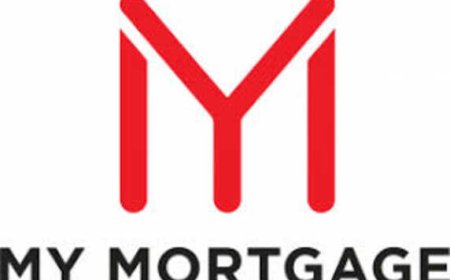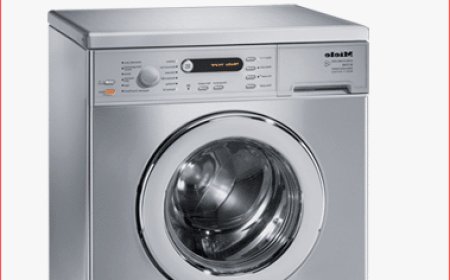Call Center Quality Assurance: Best Practices for Consistent Performance
That’s where Call Center Quality Assurance (QA) comes in. More than just a tool for performance monitoring, QA programs are vital for ensuring that customer interactions align with business standards, regulatory requirements, and, most importantly, customer expectations.

In today's hyper-competitive customer service environment, delivering consistent, high-quality interactions is no longer optionalit's essential. Thats where Call Center Quality Assurance (QA) comes in. More than just a tool for performance monitoring, QA programs are vital for ensuring that customer interactions align with business standards, regulatory requirements, and, most importantly, customer expectations.
Whether you're running an in-house support team or managing a large-scale BPO, a strong QA framework can drive customer satisfaction, improve agent performance, and boost overall efficiency. In this blog, well dive into the best practices that can elevate your Call Center Quality Assurance efforts for lasting, measurable impact.
What is Call Center Quality Assurance?
Call Center Quality Assurance refers to the systematic evaluation of customer interactions to ensure they meet predefined performance standards. QA typically involves listening to recorded calls, scoring them against a checklist, providing feedback, and coaching agents based on their performance.
Done right, QA can highlight training gaps, improve service consistency, and foster a culture of continuous improvement within your call center.
Why Call Center Quality Assurance Matters
Here are some reasons why businesses are doubling down on quality assurance in their call centers:
-
Customer Retention: Customers are more likely to stay loyal to brands that offer reliable, high-quality support.
-
Compliance: QA helps ensure your agents adhere to legal and regulatory standards.
-
Performance Monitoring: It provides a data-driven approach to measuring and managing agent effectiveness.
-
Training & Development: QA feedback helps pinpoint where individual agents need more coaching.
Best Practices for Call Center Quality Assurance
To get the most from your QA efforts, you need more than a basic checklist. Here are some tried-and-tested practices to consider:
1. Define Clear QA Criteria
Start with a detailed QA scorecard that outlines key performance indicators (KPIs) such as:
-
Greeting and call opening
-
Problem-solving effectiveness
-
Adherence to script (if applicable)
-
Communication clarity
-
Empathy and professionalism
-
Accurate resolution and call closure
Each criterion should be measurable and aligned with your business goals and customer expectations.
2. Use AI-Powered QA Tools
Manually evaluating every call is time-consuming and error-prone. Modern AI-based call center QA tools like Salesken automate large parts of the process by:
-
Analyzing 100% of calls in real-time
-
Identifying conversation patterns
-
Flagging compliance issues
-
Highlighting coaching opportunities
Salesken, for instance, provides deep insights into customer-agent conversations, allowing managers to offer timely feedback and make data-backed decisions.
3. Establish a Regular Feedback Loop
QA isnt a one-time event. Create a consistent feedback system that includes:
-
One-on-one reviews with agents
-
Team-wide insights on performance trends
-
Actionable coaching based on QA scores
When feedback is constructive and regular, it fosters a learning culture and encourages agents to improve.
4. Monitor All Communication Channels
Todays customer interactions go beyond just phone calls. QA processes should cover:
-
Voice calls
-
Live chat
-
Emails
-
Social media interactions
This omnichannel approach ensures your quality standards are consistent across every customer touchpoint.
5. Train QA Analysts and Supervisors
Make sure your QA team is well-trained and calibrated. They should:
-
Understand your brand voice and service expectations
-
Be skilled in communication and conflict resolution
-
Use scoring criteria consistently across evaluations
You can even run calibration sessions to align scores across different QA analysts.
6. Empower Agents with Self-Evaluation
Encourage agents to review their own interactions and identify areas of improvement. This helps them take ownership of their performance and become more self-aware, which leads to long-term improvements.
7. Track QA Metrics and KPIs
Use analytics to track performance over time. Important QA metrics include:
-
QA score trends
-
Call resolution rates
-
First-call resolution (FCR)
-
Customer satisfaction (CSAT) scores
-
Agent improvement over time
These metrics help you refine your QA processes and demonstrate ROI.
Final Thoughts
Investing in Call Center Quality Assurance is one of the smartest moves you can make for long-term customer service success. By combining clear metrics, modern tools like AI, and a consistent coaching culture, your team can deliver exceptional serviceday in and day out.
And if you're looking to automate and scale your QA program, Salesken offers a powerful conversational intelligence platform that provides real-time assistance, call analytics, and actionable coaching insights.Ready to Take Your QA Program to the Next Level? Book a free demo with Salesken today and see how AI can supercharge your Call Center Quality Assurance














































